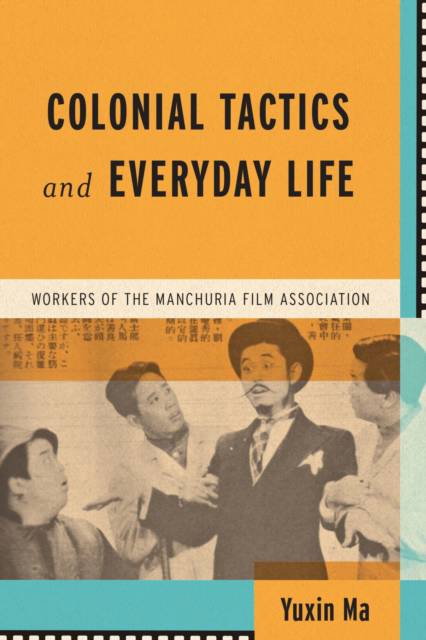
- Retrait gratuit dans votre magasin Club
- 7.000.000 titres dans notre catalogue
- Payer en toute sécurité
- Toujours un magasin près de chez vous
- Retrait gratuit dans votre magasin Club
- 7.000.0000 titres dans notre catalogue
- Payer en toute sécurité
- Toujours un magasin près de chez vous
135,95 €
+ 271 points
Description
Following the Japanese invasion of northeast China in 1931, the occupying authorities established the Manchuria Film Association to promote film production efficiency and serve Japan's propaganda needs. Manchuria Film Association had two tasks: to make "national policy films" as part of a cultural mission of educating Chinese in Manchukuo (the puppet state created in 1932) on the special relationship between Japan and the region, and to block the exhibition of Chinese films from Shanghai that contained anti-Japanese messages. The corporation relied on Japanese capital, technology, and film expertise, but it also employed many Chinese filmmakers. After the withdrawal of Japanese forces in 1945, many of these individuals were portrayed as either exploited victims or traitorous collaborators. Yuxin Ma seeks to move the conversation beyond such simplistic and inaccurate depictions. By focusing on the daily challenges and experiences of the Chinese workers at the corporation, Ma examines how life was actually lived by people navigating between practical and ideological concerns. She illustrates how the inhabitants of Manchukuo navigated social opportunities, economic depression, educational reforms, fascist rule, commercial interests, practical daily needs, and more-and reveals ways in which these conflicting preoccupations sometimes manifested as tension and ambiguity on screen. In the battle between repression and expression, these Chinese actors, directors, writers, and technicians adopted defensive and opportunistic tactics. They did so in colonial spaces, often rejecting modernist representations of Manchukuo in favor of venerating traditional Chinese culture and values. The expertise, skills, and professional networks they developed extended well beyond the occupation into the postwar period, and may individuals reestablished themselves as cinema professionals in the socialist era.
Spécifications
Parties prenantes
- Auteur(s) :
- Editeur:
Contenu
- Nombre de pages :
- 360
- Langue:
- Anglais
- Collection :
Caractéristiques
- EAN:
- 9780299340209
- Date de parution :
- 17-01-23
- Format:
- Livre relié
- Format numérique:
- Genaaid
- Dimensions :
- 155 mm x 231 mm
- Poids :
- 680 g

Les avis
Nous publions uniquement les avis qui respectent les conditions requises. Consultez nos conditions pour les avis.






